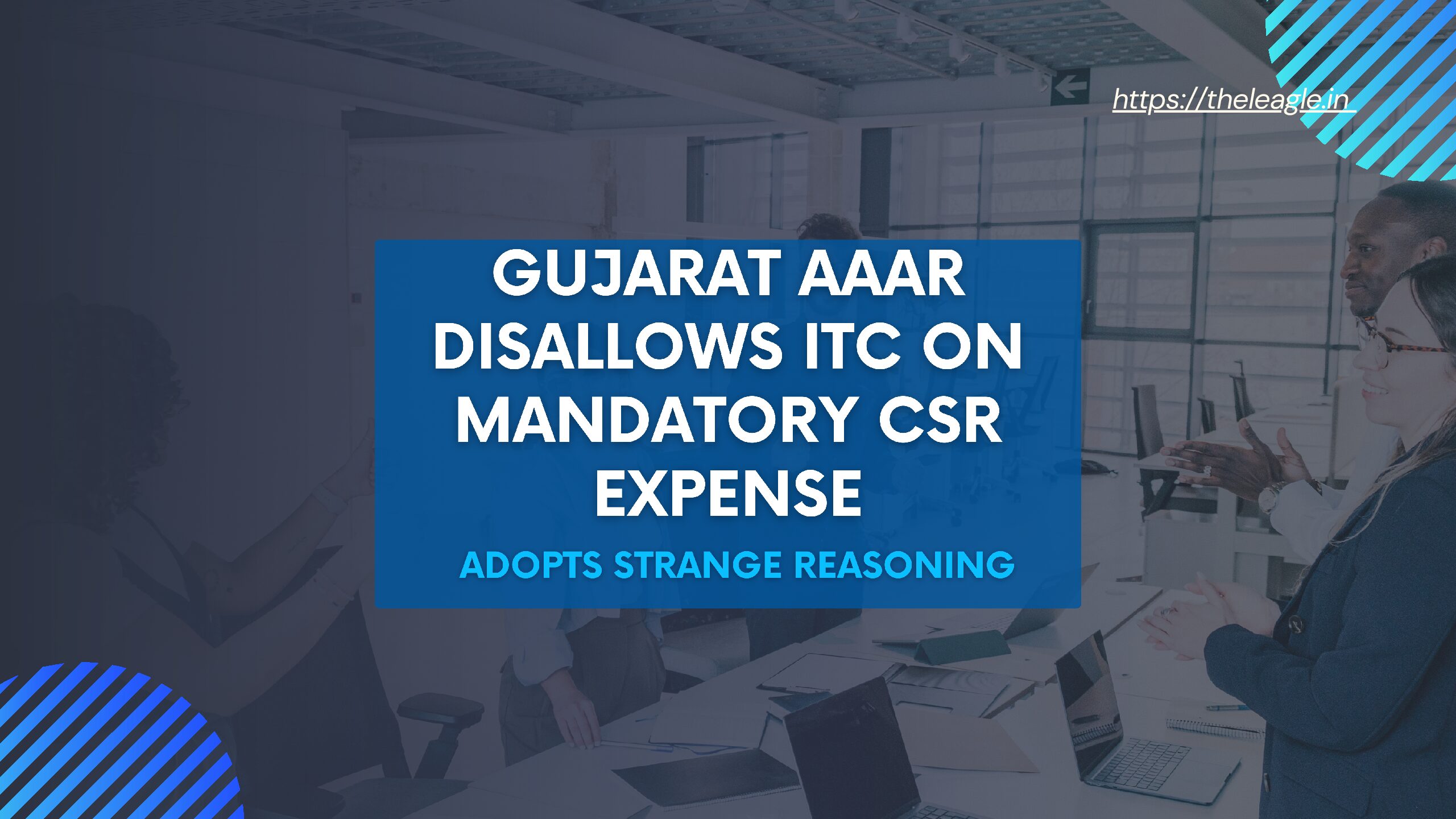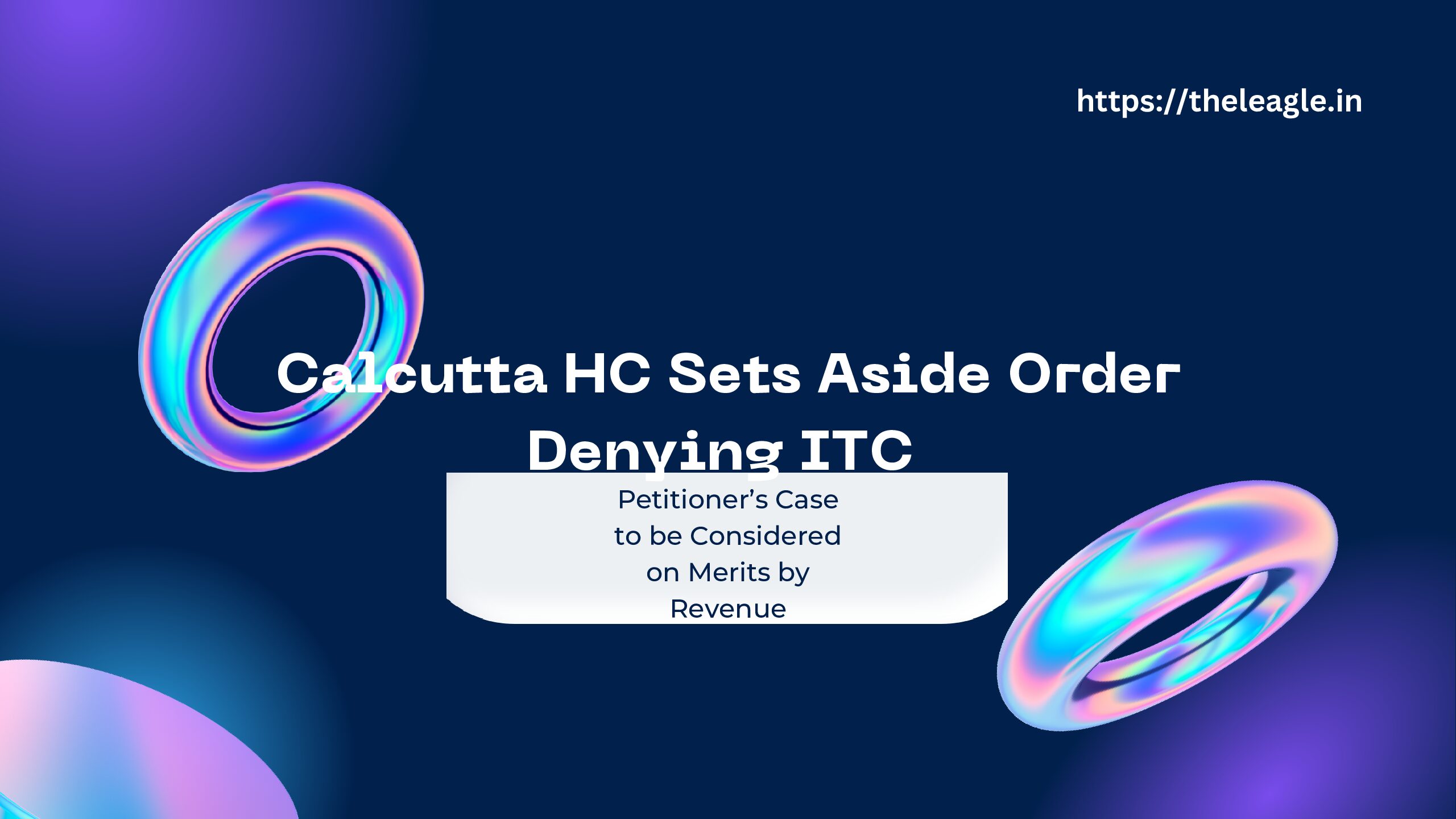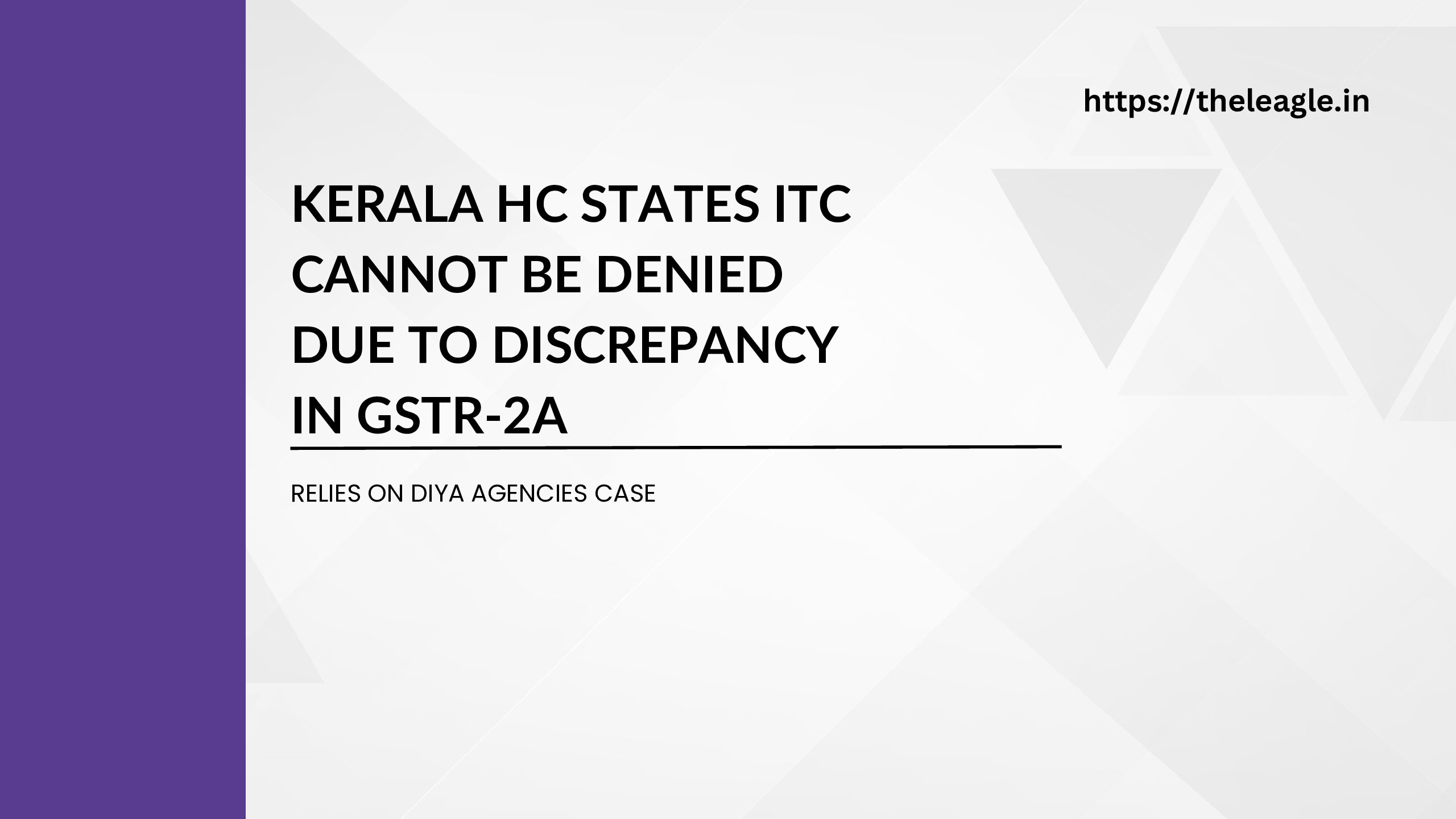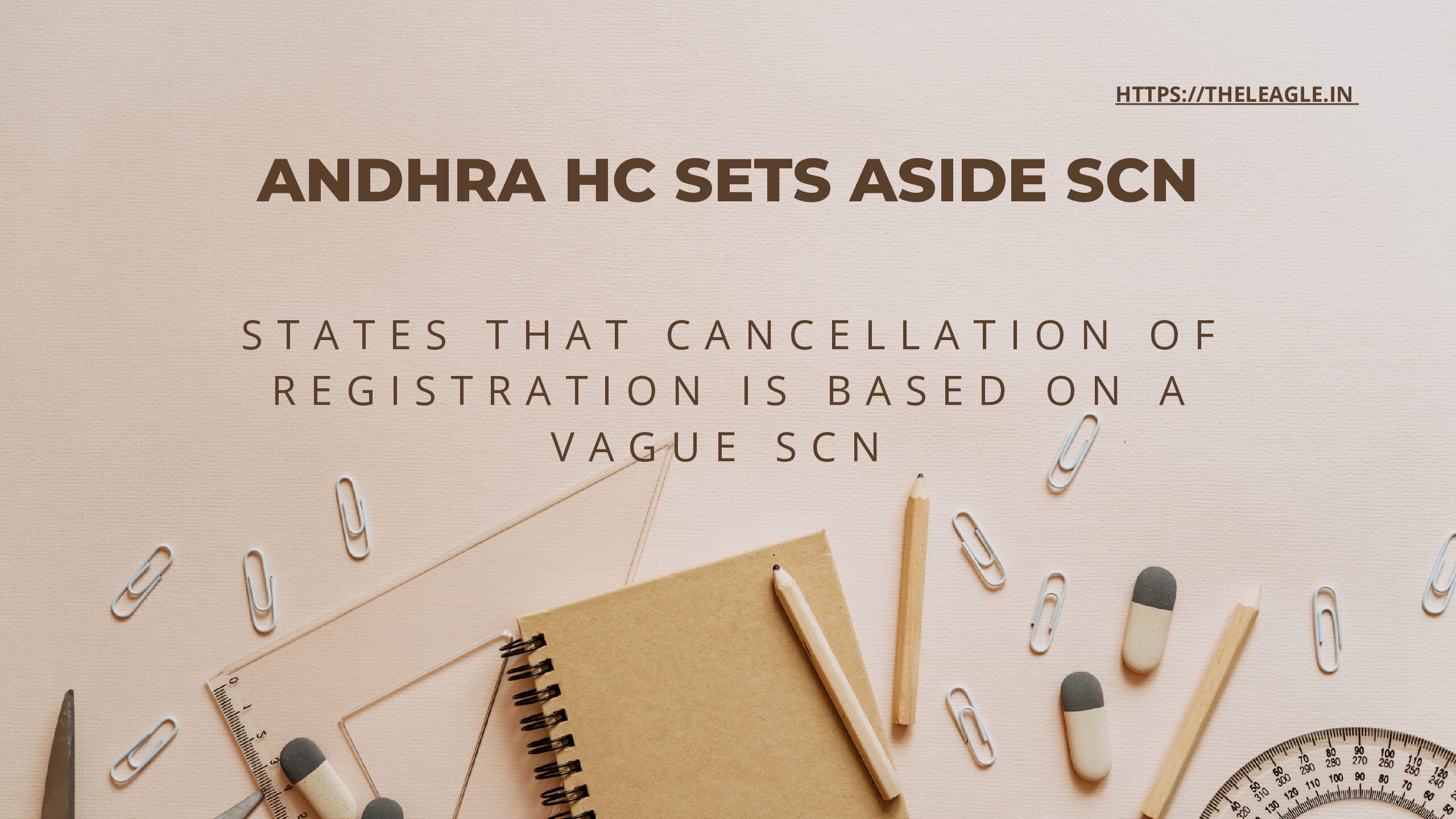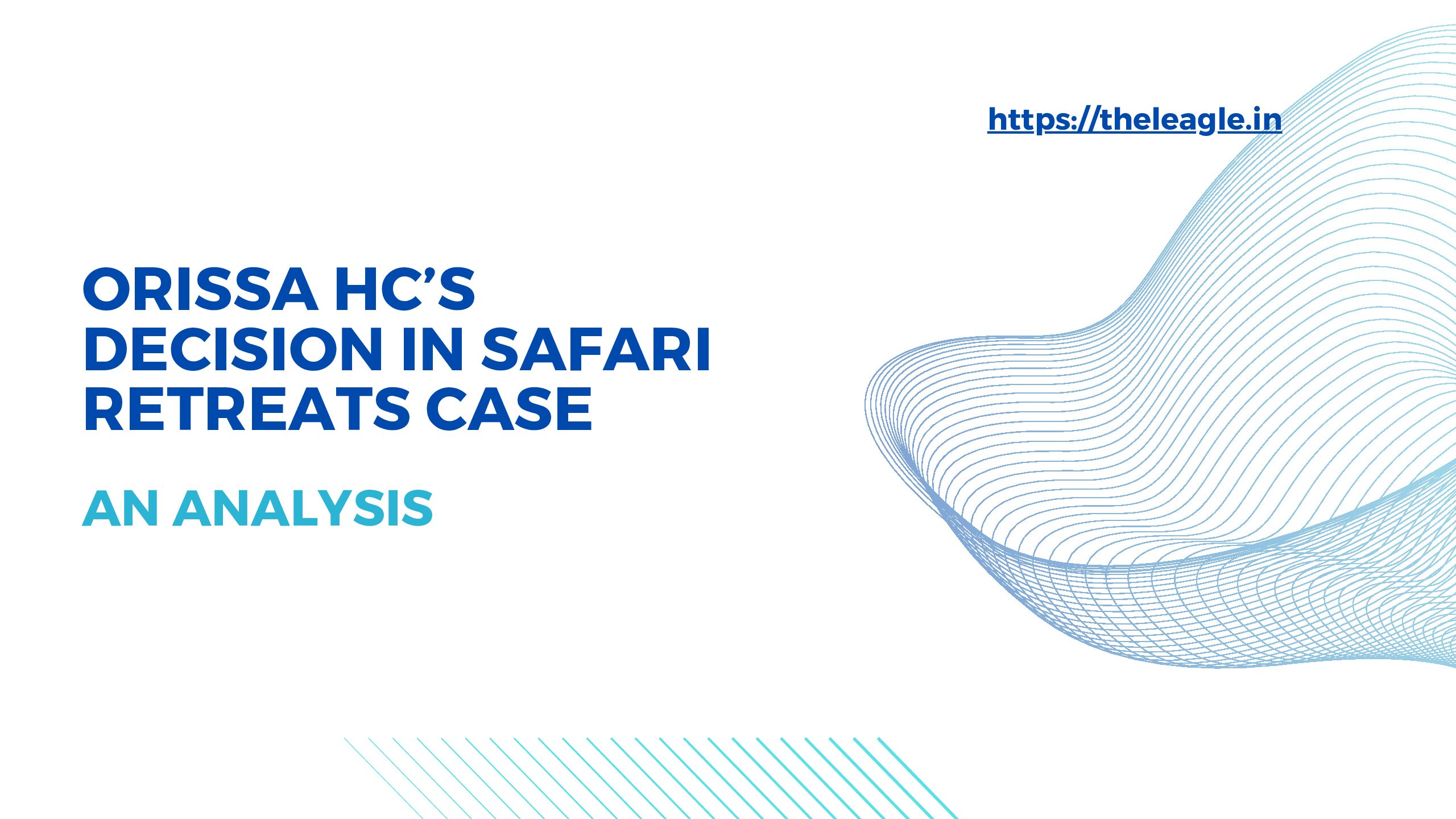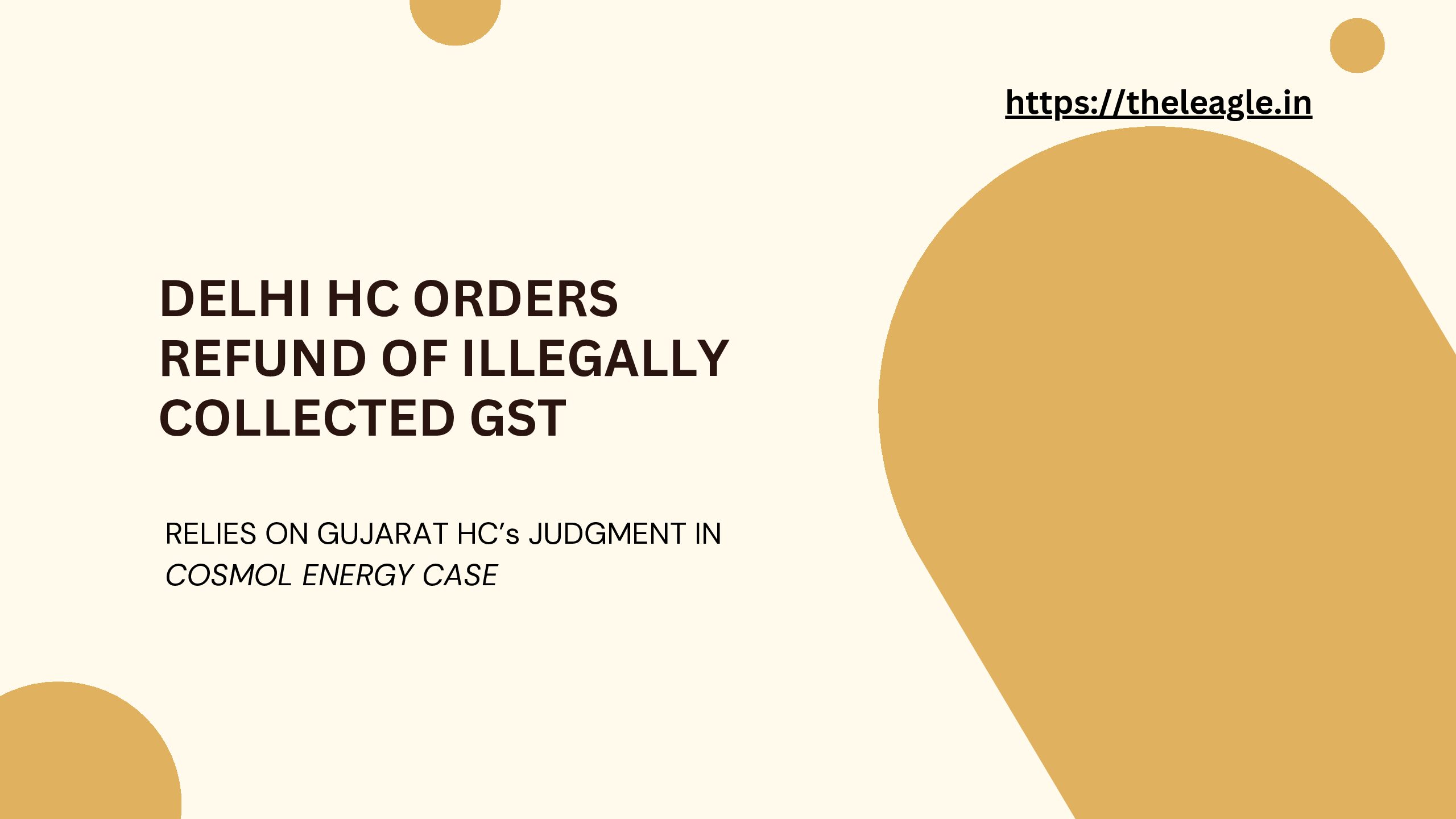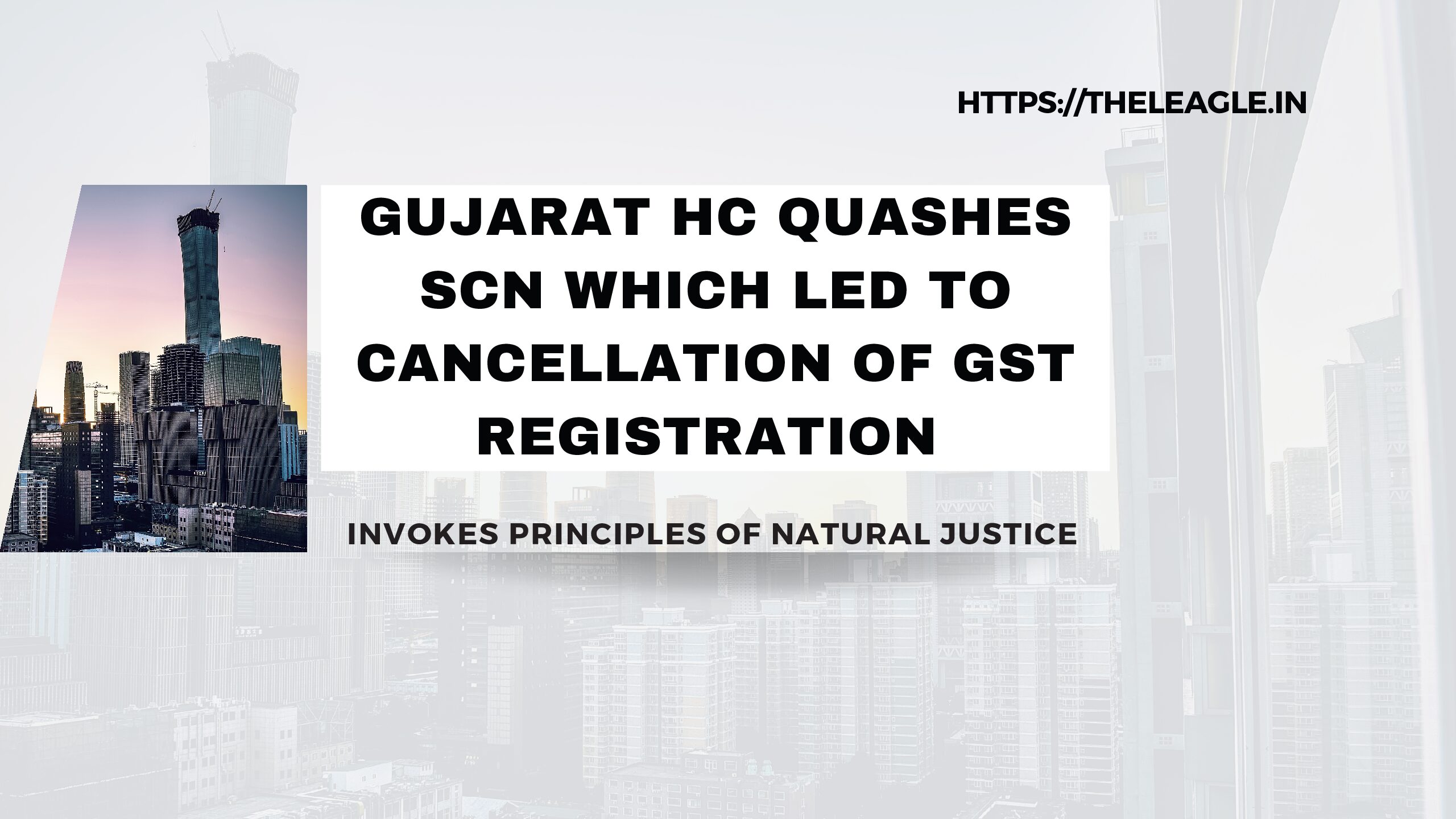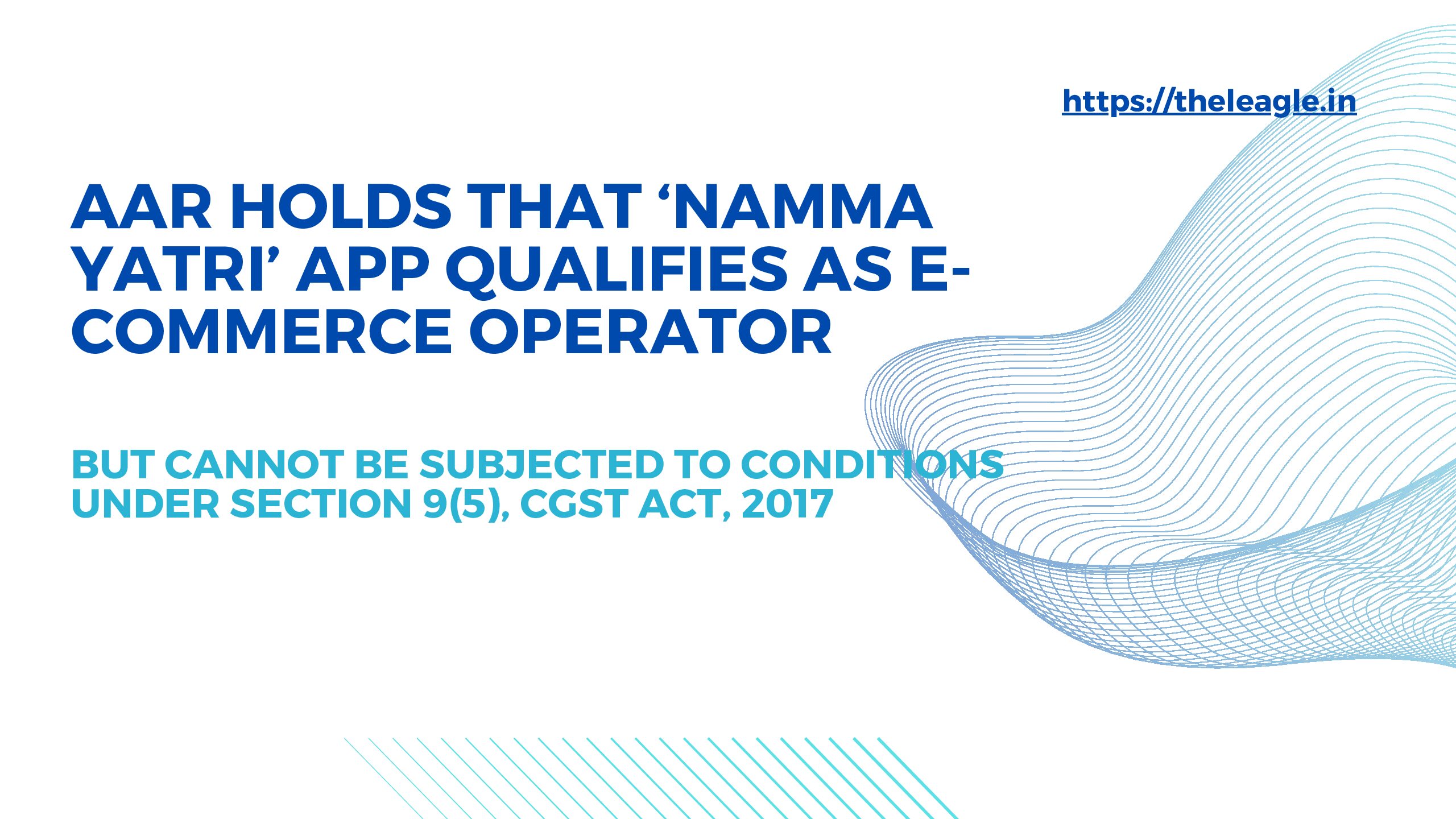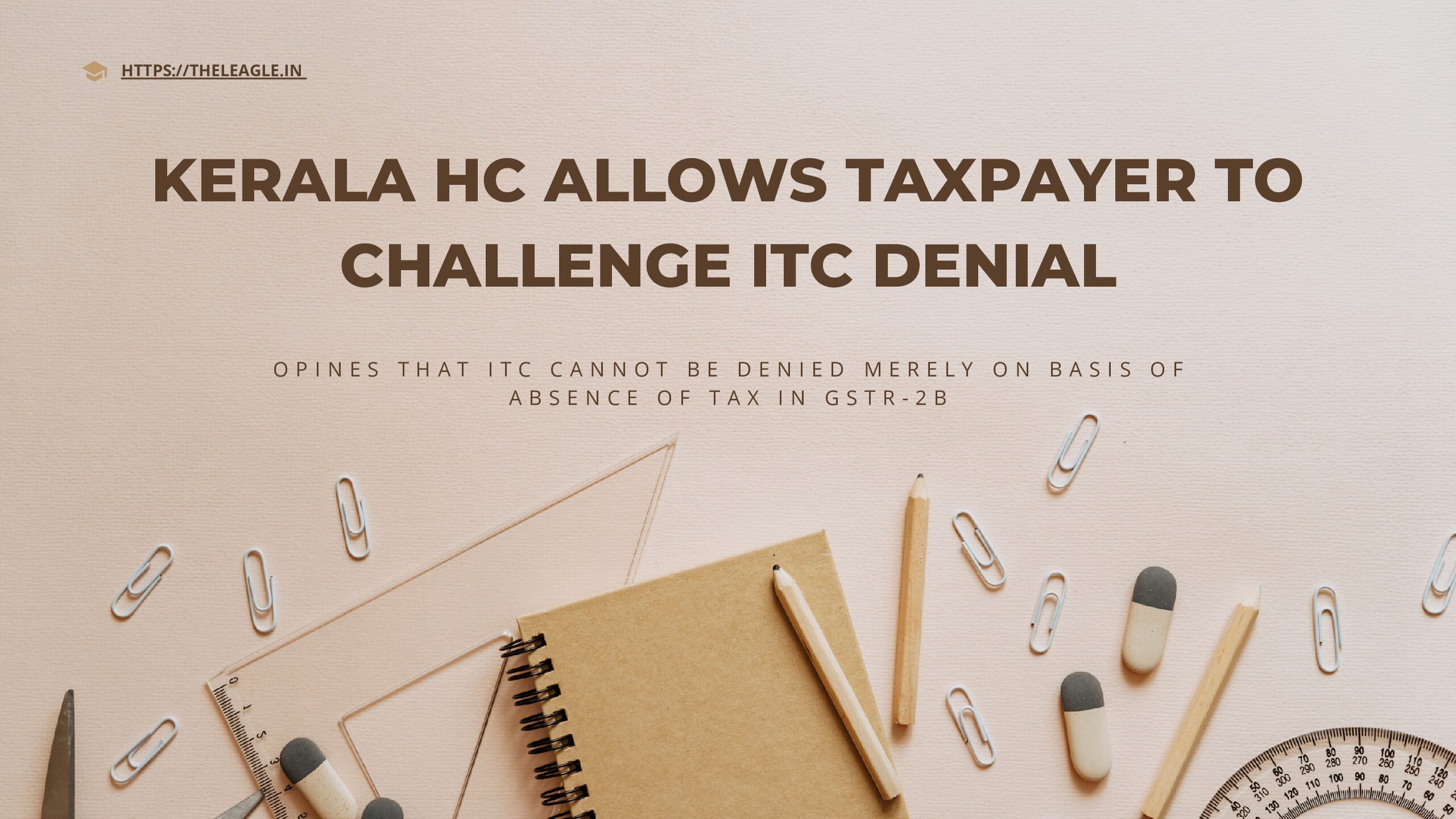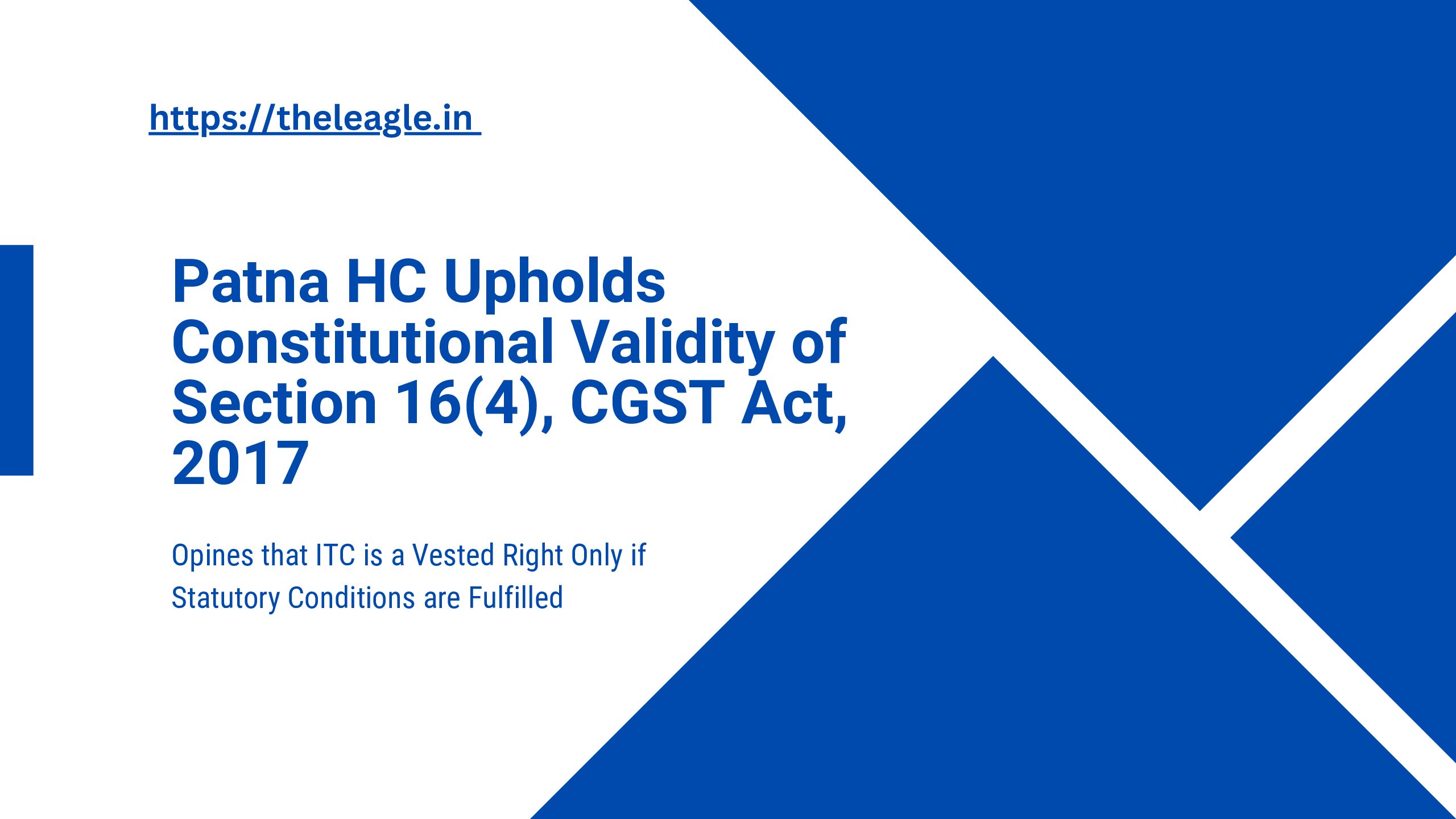This post is an attempt to understand the Orissa High Court’s judgment in Safari Retreats case.[1] While the judgment was pronounced by the High Court in April 2019, its current relevance stems from the appeal against the judgment being currently heard by the Supreme Court. This post is an attempt to understand the petitioner’s case as presented before the Orissa High Court and the nature of issues that the Supreme Court may have to engage with to decide the issue satisfactorily.
Introduction
The facts of the case were straightforward: petitioners were in the business of construction of shopping malls for the purpose of letting out the same to numerous tenants and lessees. Petitioners purchased huge quantities of materials and inputs for the purpose of construction, i.e., cement, plywood, wires, lifts, electrical equipment, etc. and paid GST on the said purchases. The petitioner completed construction of one of the shopping malls in Bhubaneshwar and decided to let out different units to various persons on a rental basis. The activity of letting out units amounts to a supply of service and is taxable under the relevant GST legislations, i.e., Central Goods and Services Act, 2017 and the Odisha Goods and Services Act, 2017 (‘GST laws’).
The petitioner claimed that it had accumulated Input Tax Credit (‘ITC’) of Rs 34,40,18,028/- on purchase of inputs for construction of the shopping mall. However, the Revenue Department advised it to deposit the entire sum instead of claiming ITC on the same in view of the restriction placed under Section 17(5)(d) of GST laws. Section 17(1), CGST Act, 2017 states that where the goods or services or both are used by a registered person partly for the purpose of business and partly for other purpose, the amount of credit shall be restricted to so much of the input tax as is attributable to the purposes of his business. Section 17(5) provides that notwithstanding anything contained in sub-section (1), ITC shall not be available for certain supplies. Section 17(5)(d) provides that ITC shall not be available in respect of the following:
Goods or services or both received by a taxable person for construction of an immovable property (other than plant or machinery) on his own account including when such goods or services or both are used in the course or furtherance of business.
Explanation.- For the purposes of clauses (c) and (d), the expression “construction” includes re-construction, renovation, additions or alterations or repairs, to the extent of capitalization, to the said immovable property.
The Revenue Department cited the aforesaid provision and stated that the petitioner cannot claim ITC of of Rs 34,40,18,028/- against the supply of service, i.e., renting of units in the shopping mall. The petitioner challenged the vires of Section 17(5)(d), CGST Act, 2017 arguing that in its case there was no break in the tax chain. The petitioner argued that it had paid GST on purchase of its inputs and collected tax from the tenants while letting out units in the shopping mall. And while blocking ITC if an immovable property is sold made sense, because sale of immovable property after issuance of completion certificate did not attract GST. However, blocking ITC in the petitioner’s case was devoid of reason since there was no break in the tax chain, i.e., its input and output were both subject to GST.
Orissa High Court’s Decision
The Orissa High Court’s judgment in the impugned case is a unique case of devoting a substantial part of the judgment to arguments of the parties and earmarking only a miniscule portion to the conclusion without articulating detailed reasons for its conclusion. The High Court stated that the very purpose of GST laws is to ensure uniform collection of tax on supply of goods and services and prevent multi taxation. And by stating the aforesaid objective of GST laws, it concluded that:
While considering the provisions of Section 17(5)(d), the narrow construction of interpretation put forward by the Department is frustrating the very objective of the Act, in as much as the petitioner in that case has to pay huge amount without any basis. Further, the petitioner would have paid GST if it disposed of the property after the completion certificate is granted and in case the property is sold prior to completion certificate, he would not be required to pay GST. But here he is retaining the property and is not using for his own purpose but he is letting out the property on which he is covered under GST, but still he has to pay huge amount of GST, to which he is not liable. (para 19) (emphasis added)
Thus, the Orissa High Court concluded that Section 17(5)(d) should be read down and the narrow reading adopted by the Revenue Department should not be accepted since ‘the very purpose of the credit is to give benefit to the assessee.’ (para 20) In stating the latter, the High Court relied on the observation made by the Supreme Court in Eicher Motors case[2] where in the context of excise duty, it had held that the right to claim ITC vests when the tax on inputs is paid and right to ITC becomes absolute when input is used in the manufacture of the final product.
There are two pillars on which the High Court’s conclusion is standing: GST’s avowed purpose of preventing multi taxation, which in the context can be reasonably interpreted to mean prevention of tax on tax; second, is the High Court’s understanding of ITC as a benefit that the State provides to an assessee.
The first reason has credence and relevance in every case involving blocking of ITC. Since it is a vital objective of GST to prevent cascading effect of taxes, the burden should be on the State to justify why in certain circumstances there is deviation from it and articulate the underlying rationale or policy objective. So High Court’s reliance on GST’s purpose of ensuring uniformity and preventing tax on tax was justifiable. Prevention of tax on tax and uniformity of GST, both are relevant and valid purposes of GST, on the touchstone of which cases can be adjudicated, but the High Court seems to have relied on them excessively in the impugned case. Equally, the High Court did not bother to seek an explanation from the State as to the reason for incorporating Section 17(5)(d). Second, Supreme Court’s observation in Eicher Motors case about ITC being a benefit provided to the taxpayer was in a different context: rules to claim ITC were changed after several taxpayers had utilized the input in the final product. It was in that context that the Supreme Court observed that ITC had vested in the taxpayer. In the impugned case, there was no change in the relevant provisions after the petitioner had initiated the transaction. Section 17(5)(d), CGST Act, 2017 clearly stated that ITC in petitioner’s case was blocked and there was no change while the transaction was ongoing. While the differing fact situations not detract from the larger debate on whether ITC is a State’s concession or taxpayers’ right; the issue did receive a rather cursory treatment from the High Court in the impugned case.
Petitioner’s Arguments before the Orissa High Court
I’m discussing the arguments adopted before the High Court at the end because they are likely to be repeated before the Supreme Court in a similar manner or edited suitably. I’m mentioning some of the arguments below to better illustrate how the petitioners’ in the impugned case viewed their position wherein they were unable to claim ITC and their view of the provision in question, i.e., Section 17(5), CGST Act, 2017.
First argument of note that the petitioner adopted was that by allowing ITC to taxpayers who construct a building with the intent of sale under Schedule II, para 5(b) of CGST Act, 2017, but denying it to petitioners who let out such property on rent is violative of Article 14 of the Constitution. The petitioners alleged discriminatory treatment and argued that Section 17(5)(d) was arbitrary in nature. The petitioners laboured on the fact that under Schedule II, para 5(b) of CGST Act, 2017 ITC is only blocked if the entire consideration for the building in question is received after issuance of completion certificate. As per petitioners in such instances blocking of ITC made sense since no GST is charged in such scenarios, leading to disruption of tax chain. But in the petitioner’s case they were paying GST on their inputs and collecting GST on their output, i.e., renting property to their tenants leading to an unbroken tax chain and thereby not creating any rationale for blocking ITC in their situation.
Second, the petitioner touched upon the fact that blocking their ITC is an unreasonable restriction under Article 19(1)(g) of the Constitution but did not elaborate on the unreasonableness.
Third, they repeatedly mentioned how the blocking of their ITC constitutes a detraction or at the very least a dilution of GST’s objective of preventing multiple taxation. And that by ensuring that the petitioner bear the additional burden of tax by denying them ITC the objective of GST was being frustrated.
Fourth, the petitioner pointed out that one of the ingredients in Section 17(5)(d) was that the construction should have been done by the taxpayer ‘on their own account.’ The petitioners distinguished their case from the scenarios contemplated under Schedule II, para 5(b) of CGST Act, 2017 as well as under Section 17(5)(d). They argued that the former contemplated situations where construction was ‘intended for sale’ while the latter contemplated construction by a taxpayer ‘on his account’. And that the petitioner constructed the shopping mall with an intention ‘for letting out’ to tenants and thus their cannot be covered by Section 17(5)(d).
Except for the third argument, which the Orissa High Court reproduced in its conclusion, it did not engage with any of the petitioner’s argument in any significant manner. Thus, one is unsure of what is the exact meaning of the phrase ‘on their own account’ used in Section 17(5)(d) and its resultant scope. Neither is applicability of Article 14 to the impugned set of facts clear even though the petitioner made elaborate arguments on both counts.
Finally, it is worth noting that the Orissa High Court hardly provides any space to the State’s arguments and only cites relevant judgments relied on by the State. As a result, one can only gather that the State was arguing that ITC can only be claimed if the statutory conditions are met and the relevant conditions cannot be assailed as unconstitutional only because the tax set off is denied to the taxpayers.
Way Forward
The Revenue has filed an appeal against the Orissa High Court’s judgment and the approach that the Supreme Court will adopt is of course difficult to predict. But it is safe to say that a conservative approach wherein the legislature is provided a wide leeway in enacting tax laws is unlikely to lead to a conclusion that aligns with the Orissa High Court. Though such an interpretive approach would not be novel, but in line with well-entrenched jurisprudence. On the other hand, if the Supreme Court’s bench adjudicating the case is persuaded by the advocates in question that the provision in question infringes on a Fundamental Right, e.g., Article 19(1)(g) of the Constitution or falls foul of Article 14 then there is a possibility of the Supreme Court reading down the provision akin to the Orissa High Court’s opinion. Irrespective, I will update the latest developments on this case via another blog post.
[1] Safari Retreats Pvt Ltd v Chief Commissioner of GST [2019] 105 taxmann.com 324.
[2] Eicher Motors Ltd v Union of India (1999) 2 SCC 361.
